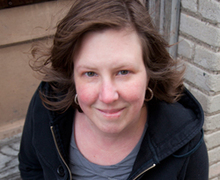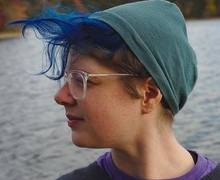Interview with Deb Nicholson and Molly de Blanc
All Ages: How to Build a Movement


Deb Nicholson and Molly de Blanc will give a talk about All Ages: How to Build a Movement at FOSDEM 2017.
Q: Could you two briefly introduce yourself?
Molly: Deb is a total triple-threat of free software support and advocacy. When I first met her, she was focusing on membership and campaigns at the Free Software Foundation. Since then she’s become an expert on communities and making space for contributors, patents and legal issues, and how to advocate for yourself and your beliefs. She also plays music, builds things, rides a bike around the Greater Boston Area, cooks, and has a pretty adorable cat.
Deb: Molly was the best intern a person ever had. (Sorry to other persons who have interned for me in the past) She is an international free software superstar, well-known for asking hard questions, being at all the best parties and attending all the meetings. She excels at research, event-planning and makes a damn fine dessert, should you be lucky enough to wangle an invitation.
Q: What will your talk be about, exactly? Why this topic?
Deb: We will be discussing the mechanics of building a free software movement that is appealing and inspiring to people of all ages.
Molly: We’ll also talk about the current status of ageism in tech–looking at what both younger people and older people encounter.
Q: What do you hope to accomplish by giving this talk? What do you expect?
Molly: There is value in having a diverse community of contributors, users, and employees. Diversity is intersectional, and spreads across multiple demographic points, and extends beyond the “check boxes” we encounter on surveys and censuses.
Deb: We hope that people will look at their corner of the free software movement and ask themselves, “Are there age groups that we aren’t including in our outreach? Let’s see if we can cast a wider net for participating in our project.”
Q: We don’t hear a lot about the topic of age in the free software world. How did you become interested in the topic of multi-generational communities and why?
Deb: I am old and Molly is not. I happen to know that Molly looks forward to being old and staying involved in free software. We started looking at how our experiences are different and realized that the free software movement (and tech in general) treats people very differently based on their age. I also wrote a piece last year for Bitch Magazine titled ON TV: Searching for TV’s Elder Stateswomen of Tech exploring the intersection of ageism and sexism in technology and how mainstream media reinforces some unhelpful assumptions about age and gender.
Molly: From a background working in education and higher ed, I’ve seen students and new grads struggle to becomone involved in free software, and try to find a place within tech outside of the “rockstar” and exploitative language used in job postings for entry-level positions. At the Debian Women’s meeting at DebConf 2015, someone over the age of 30 said that she was “not a fifteen year old boy,” and that idea has stuck with me ever since.
Q: What does the free software community look like in terms of ages? Is there research on this topic?
Molly: I’m not aware of research on age (and demographics) in the free software community as a whole. Recently, the Debian community ran a survey on labor issues and attached a fairly comprehensive demographics section. I strongly encourage you to ask around your projects and communities! If you’re running events, please consider adding a demographics section in your feedback forms and community surveys.
Q: Could you give us some examples of free software communities that are particularly good at facilitating a diverse, inter-generational movement?
Deb: Most projects could stand to make some improvements in this area… although there are a few bright spots that we’ll be sharing in our talk.
Q: How can people help building a multi-generational community for their free software project? What are some easy tips?
Molly: You can’t assume people will just find your community and jump in. You have to reach out to users and people who spend time around your community and let them know there are ways for them to get involved and that you have a welcoming space.
Deb: I think the first step is to try hard to take people as individuals, regardless of their age. It’s really hard to change a first impression where you’ve made negative or cliched assumptions about people’s interests or skill set. We’ll talk about some more concrete ways to make your project more intergenerational in our talk.
Q: Have you enjoyed previous FOSDEM editions?
Deb has been to five previous FOSDEM editions and looks forward to it every year. Molly will be attending FOSDEM for the first time and is very excited.

Creative Commons License
This interview is licensed under a Creative Commons Attribution 2.0 Belgium License.